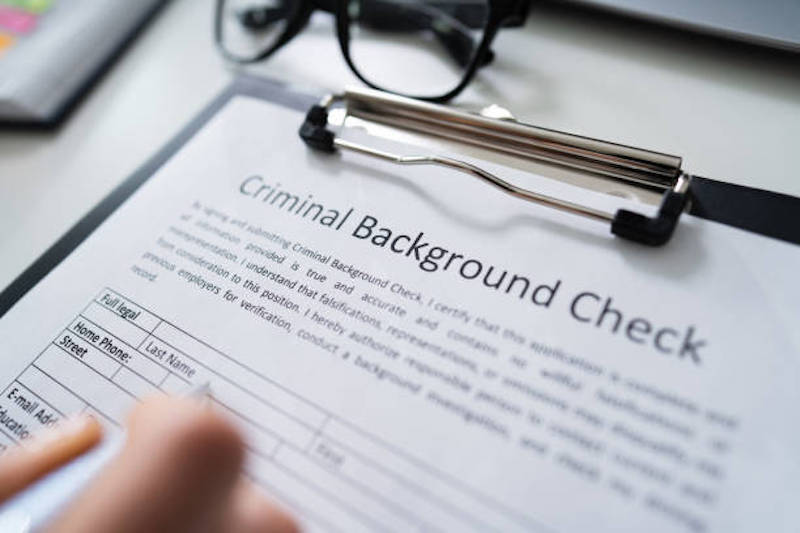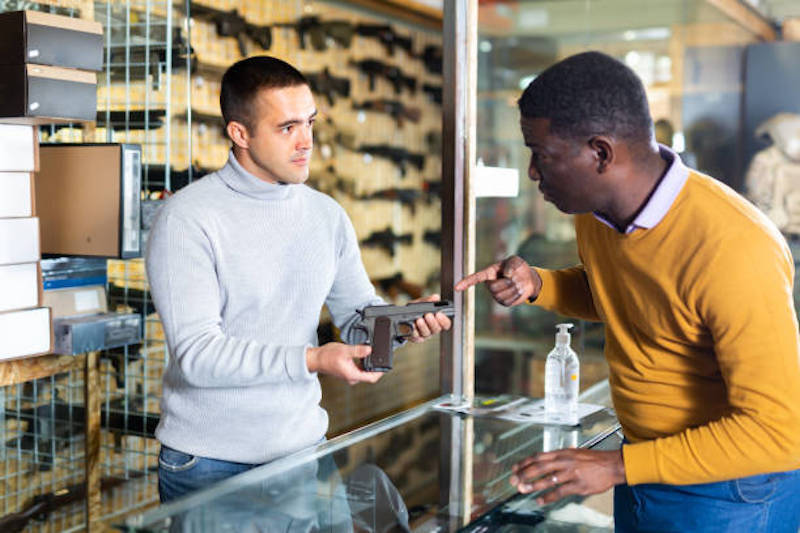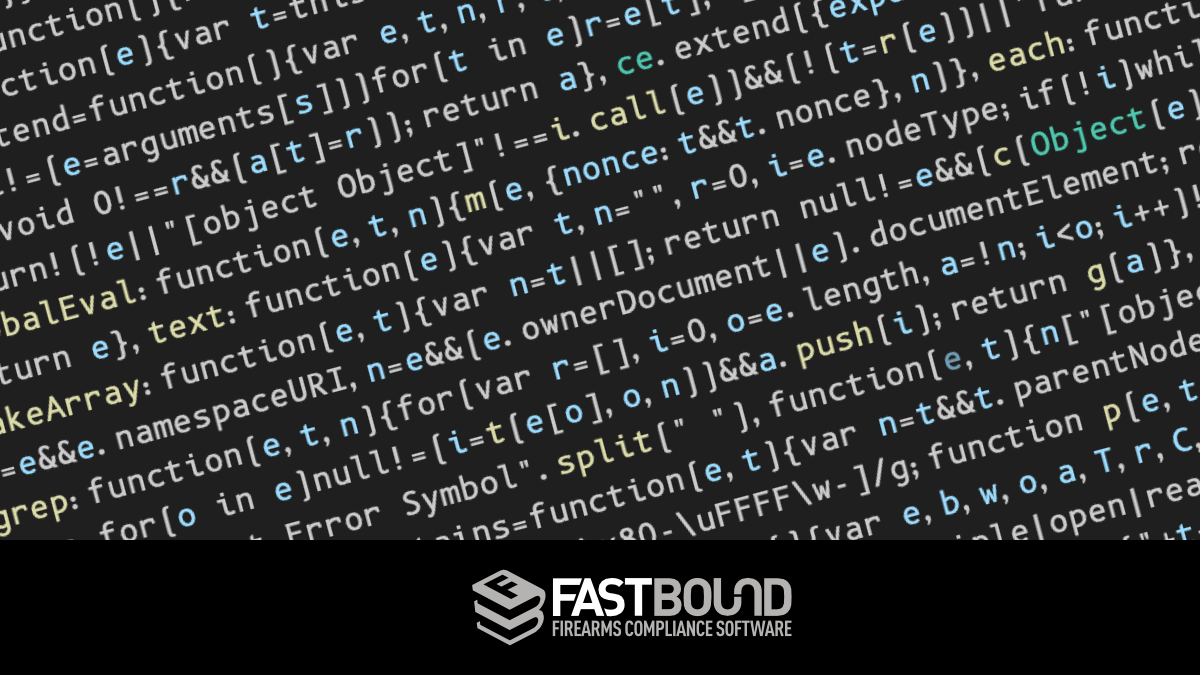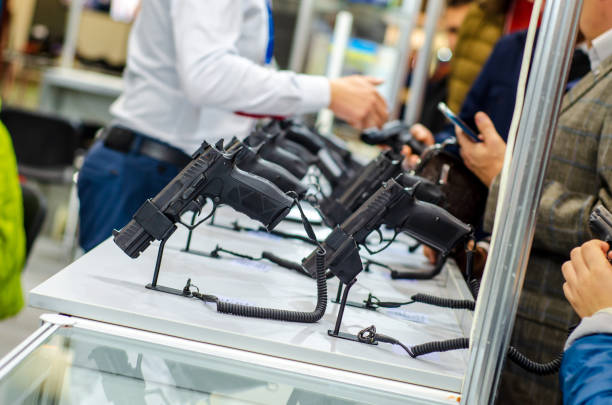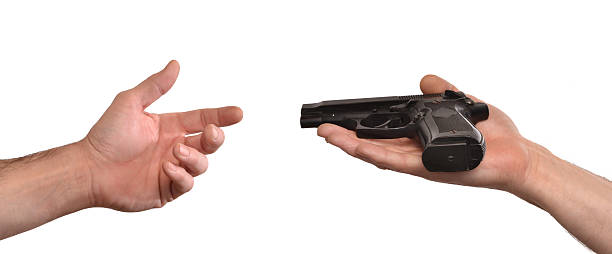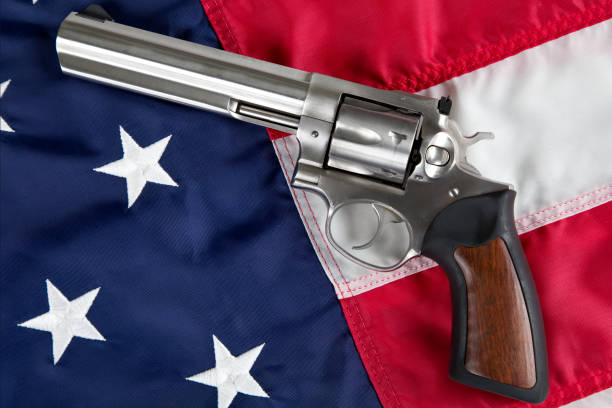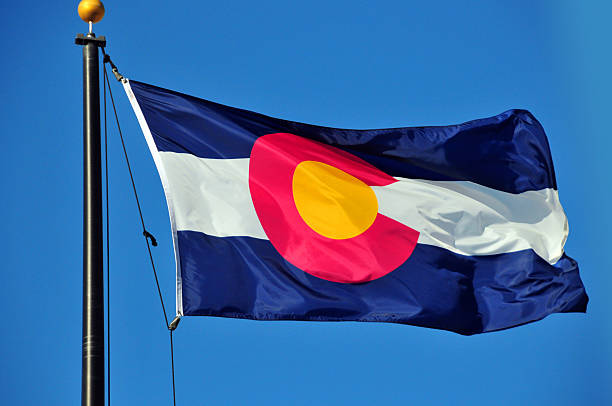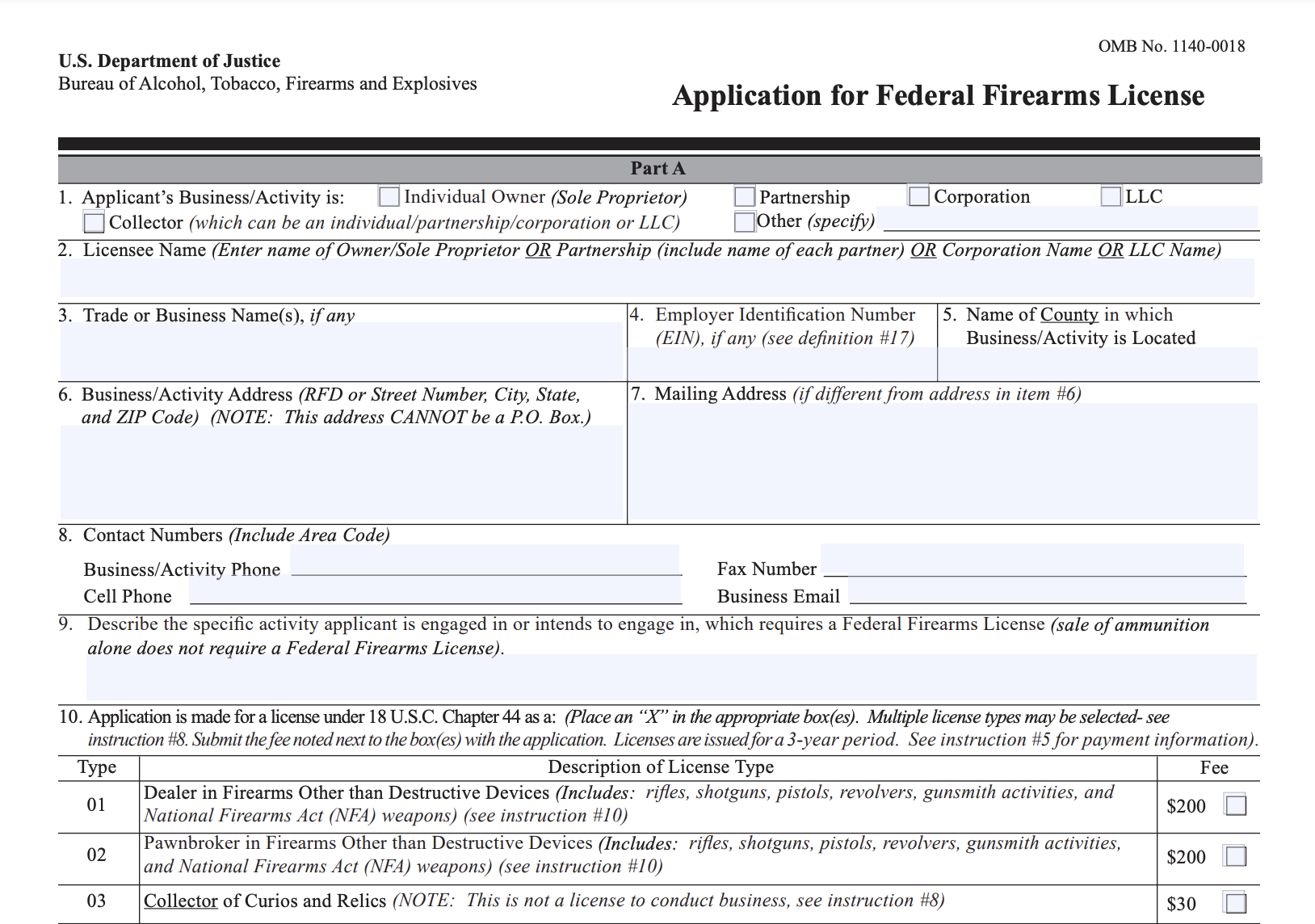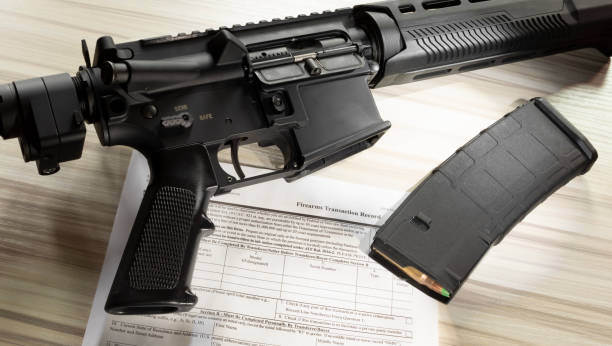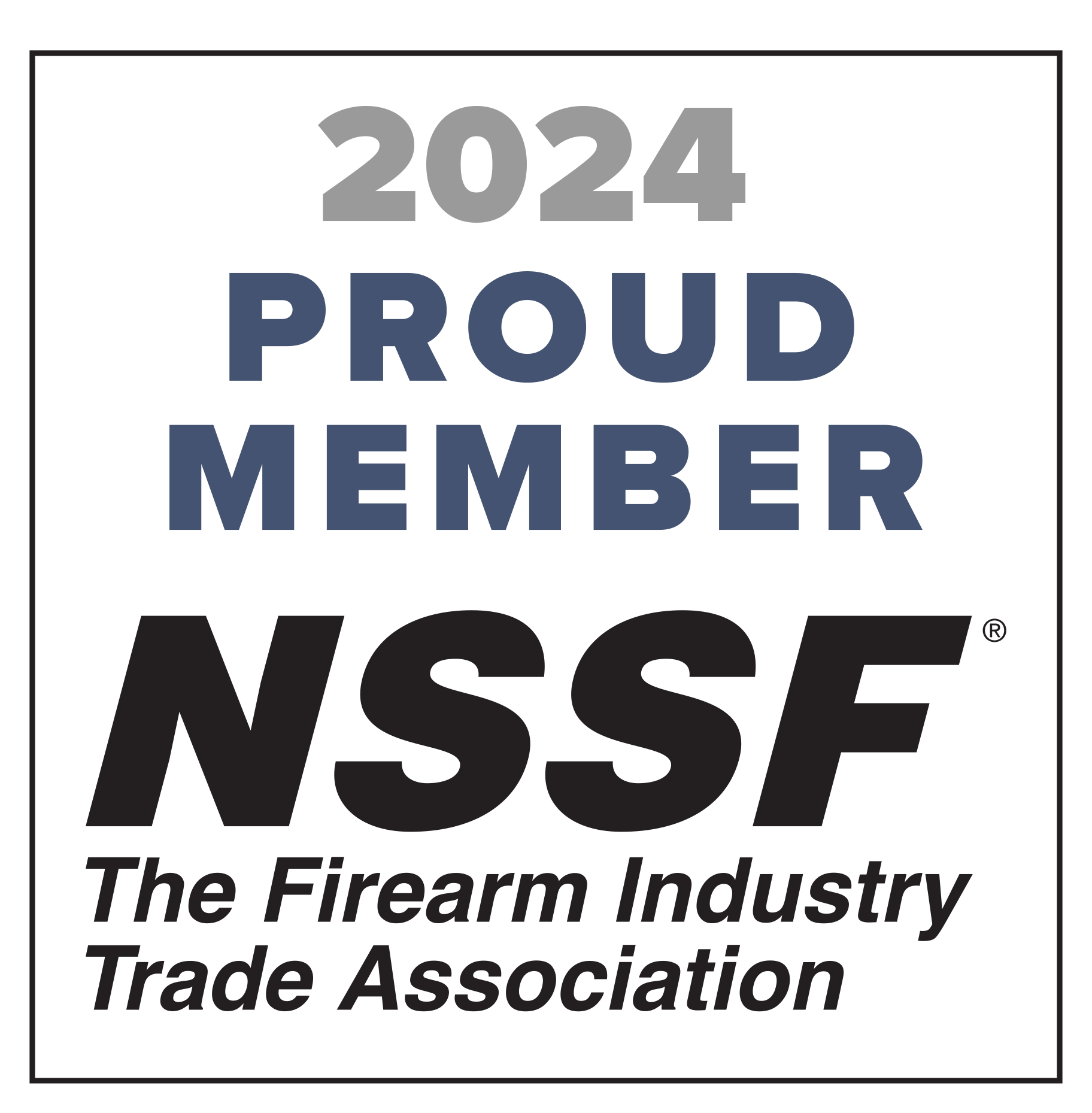Use your FFL to make money as many ways as you can. With your federal firearms license, there are multiple ways you can create revenue selling firearms.
As a business, you want to make money as many ways as you can. You already have the inventory, sales experience, and firearm recordkeeping tools ready, so it makes sense to squeeze out every possible sale.
Just because you have a license with an address listed with the ATF doesn’t mean you’re bound to selling at that location. There are several key ways to bring in additional revenue with your FFL.
Just because you have a license with an address listed with the ATF doesn’t mean you’re bound…
Once you have received your FFL, browse through inventory categories of wholesalers and manufacturers. There is a tremendous selection available.
You may decide to specialize in one type or another, which might change your sales tactics. For instance, if you choose to sell specialized, hard-to-find firearms, it wouldn’t make sense to sell in a physical location. A smart decision would be to sell online or traveling to gun shows.
First, let’s talk about the different types of FFLs. Match your license type to this list to understand what you’re allowed to sell.
The Different Types of FFLs

Source: atf.gov
The process for obtaining a Federal Firearms License can be confusing, so most people stick to just the parts that matter to them. So you might not be aware that the ATF offers nine types of FFLs for different purposes. They vary based on how you intend to sell firearms and to whom.
Generally speaking, getting an additional classification or switching classifications of your FFL is easier once you have one. The process is faster, although the fees won’t change.
FFLs for Dealers
- Type 01 – Dealer of firearms, but not destructive devices. Includes gunsmithing. This is the most common type.
- Type 02 – Pawnbroker of firearms, but not destructive devices. It allows for consignment, but comes with more frequent inspections.
- Type 03 – Collector of curios and relics. This type does not permit both buying and selling, only for adding to your personal collection.
- Type 09 – Dealer of destructive devices.
FFLs for Manufacturers
- Type 06 – Manufacturer of ammunition, but not ammo for destructive devices or armor piercing ammunition.
- Type 07 – Manufacturer of firearms, but not destructive devices. This type provides the most value. You can do everything that Type 1 can (buy, sell, and repair), but it also gives you the option to assemble or manufacture AR style rifles (which are popular these days). The fee for this type of license is only $150 for 3 years (as opposed to Type 1’s $90 for 3 years). The difference can be recouped with one AR style firearm sale.
- Type 10 – Manufacturer of destructive devices, ammunition for destructive devices, and armor piercing ammunition.
FFLs for Importers
- Type 08 – Importer of firearms or ammunition, but not destructive devices or armor piercing ammunition.
- Type 11 – Importer of destructive devices, ammunition for destructive devices, and armor piercing ammunition.
Destructive devices is a category that includes grenades, firearms with a bore over one half inch, and semi-automatic shotguns. Many states prohibit the transfer of these items to civilians.
It’s important to note that an FFL is designed for business use. The ATF does not permit you to use your FFL for entirely personal use. You cannot, for instance, obtain an FFL so you could buy 200 firearms from an importer and stockpile them in your home. Your FFL comes with random inspections from the ATF, so they’ll find out if you’re using your license improperly.
Selling From Your Home
With a Type 01 FFL you can sell firearms right out of your home. You do not need a retail store. In fact, independent research has found that 64% of FFLs are used this way.
Using your FFL in your home offers a lot of advantages. You can make more money than retail stores on each purchase because you have access to wholesale pricing, but fewer overhead expenses. You aren’t required to have an alarm system or safe, but I highly recommend them.
Many home-based FFL dealers get their license for ease of buying for their family and friends. You aren’t required to earn a profit, so you can pass your savings on to others if you choose. As an FFL holder, you don’t have to deal with background checks or waiting periods whenever you buy (in most states).
Keep in mind, however, that as your place of business, your home is subject to a yearly ATF inspection. (They don’t happen that often, but they can inspect every 12 months.) You are still required to maintain the same recordkeeping standards as a retail operation, including an A&D book. Using an electronic A&D solution is useful for home-based FFLs so you don’t have to clutter your home with paperwork.
Selling at Gun Shows
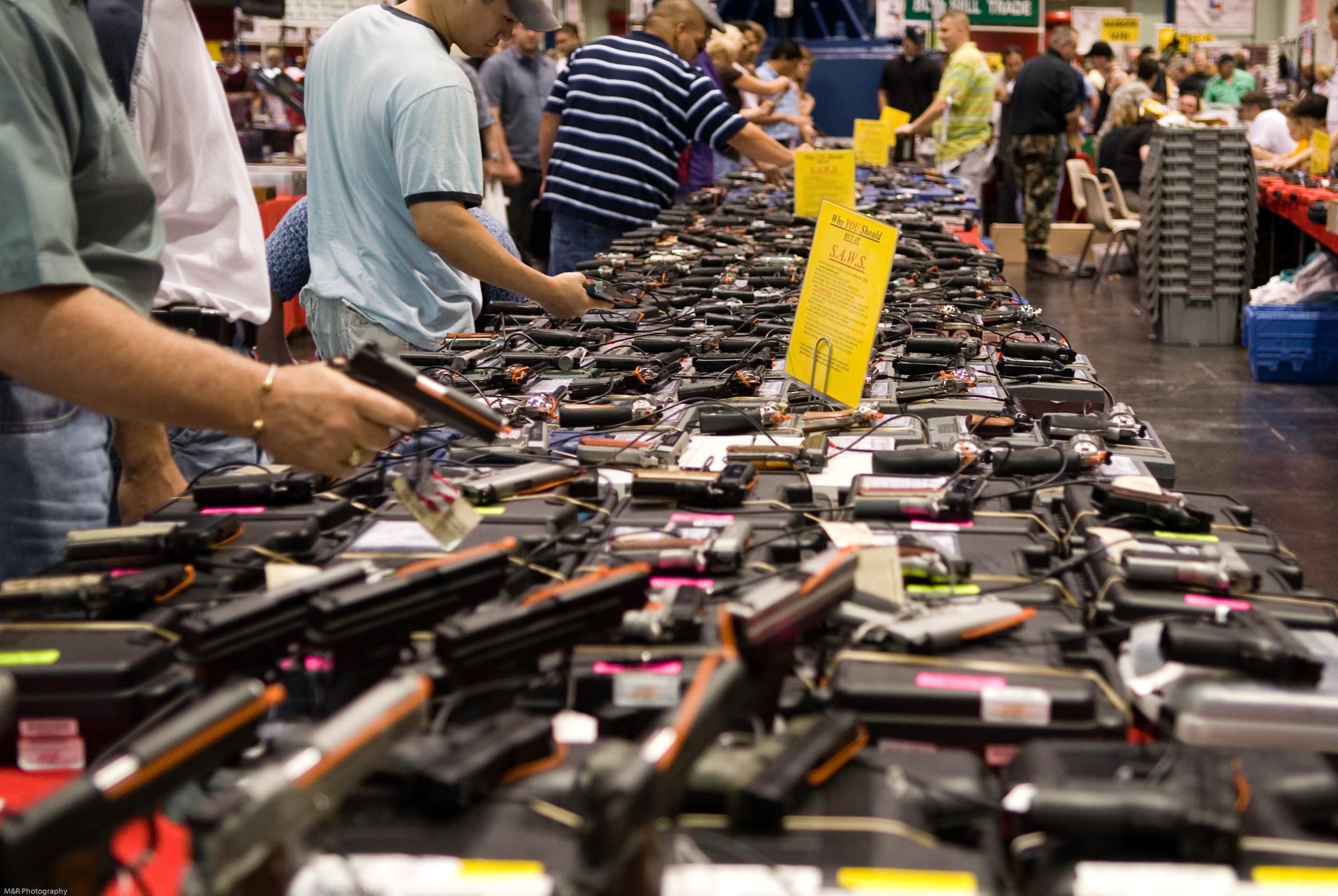
With your FFL, you aren’t bound to sell firearms in any particular location. If you like, you can move around and sell at different locations, such as gun shows and flea markets. In fact, many firearms dealers make their living only selling at shows. A 2007 U.S. Department of Justice report found that there are between 2,000 and 5,200 gun shows in the U.S. each year.
Before you sell at a gun show, make sure it’s a “qualified” event that complies with Title 27 of the Code of Federal Regulations 478.100. A qualified event is a show that is sponsored by a national, state, or local organization that’s devoted to the competitive use, collection, or other sporting use of firearms. FFLs can sell at events if the gun show or event is located in the same state as the license and the business isn’t conducted from a vehicle or trailer.
A challenge you’ll face at a gun show is competing with private sellers. Private sellers are not required to complete paperwork, conduct background checks, or impose waiting periods. But you’ll find many buyers who prefer to buy safely from licensed vendors.
Selling Online
The advantages of selling online are obvious: You can sell to a much larger group of people with little overhead. If you already have a brick-and-mortar store, selling online is even easier because you already have a recordkeeping system, and the inventory and a space to keep it.
Many dealers sell their guns online through a broker like GunBroker. This is an auction website that doesn’t require much setup on your end. You don’t need a custom website and payment processor. The structure is already set up for buying, selling, and transferring money.
If you wanted, you could create your own website. This gives you absolute control over your operation and marketing. There are countless ecommerce systems available that make setting up online stores easy, but most of them do not permit firearm sales. You’ll need extensive knowledge of building and operating a website or someone you can hire.
Before you start shipping firearms, make sure you understand the policies of the carrier you choose to work with. With an FFL, shipping a firearm is easier than shipping without a license, but make sure your carrier is willing to work with you and what their rules all.
Furthermore, only FFLs can receive firearm shipments. You can’t ship directly to your buyer. A broker website will have a network of FFLs ready to receive firearms so your buyer can choose. If you operate your own website, you’ll have to maintain a list.
Since you already have your FFL, I recommend joining as many online gun holder networks as you can (here’s an example with GunBroker). When someone nearby purchases a firearm online, it could be sent to you to finish the sale. You can charge a fee for the service, upsell the customer on ammunition or accessories, and acquire a new customer.
Even though gun sales are highly regulated, don’t make the same mistake as many dealers – assuming you can only sell at your store. Your license gives you a lot more freedom than you might think. Squeeze out every sale possible to grow your business!


